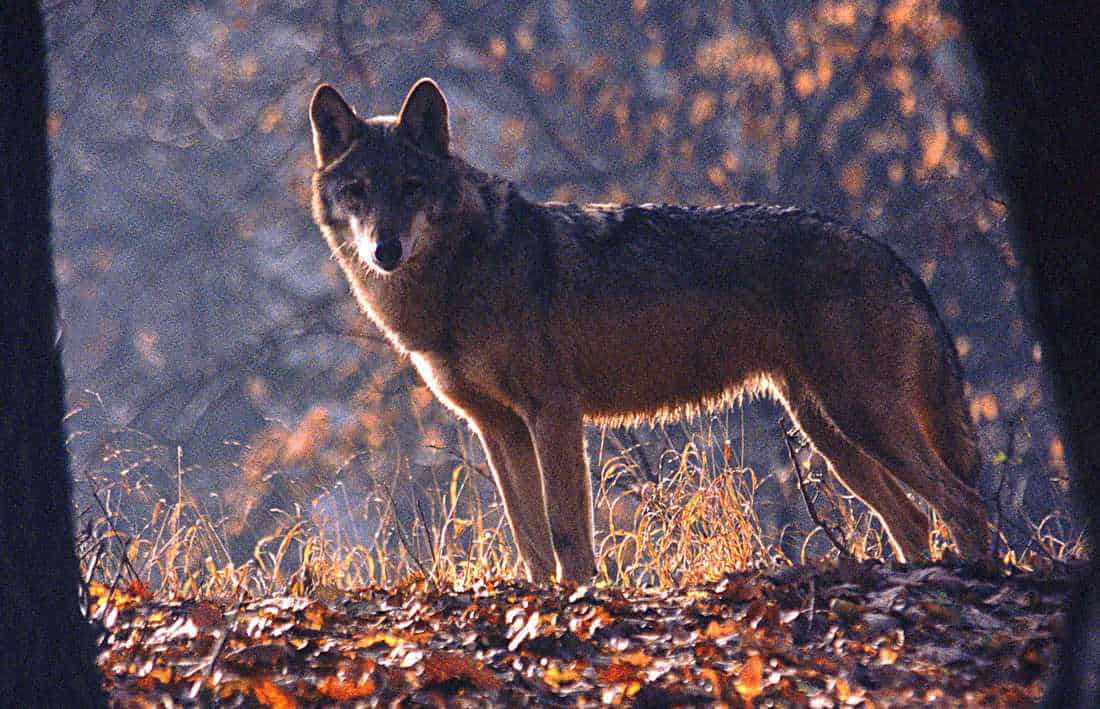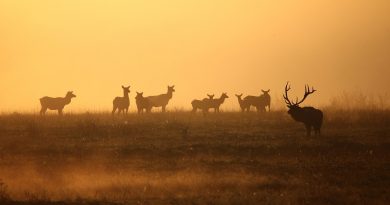Could Denmark be a wolf land?
In Denmark, there has been a long-standing debate about the protection of the wolf. After a rollercoaster-like history of wolves in the country, it seems that the discussion has finally taken a turn in favour of protecting the species and enforcing punishment for illegal culling.
Please also read: A curious case of disappearing wolves
A brief history of wolves in Denmark
Wild wolves have not been seen in Denmark since 1813. Then, after 200 years, in 2012 several – mostly male – wolves have been observed and monitored in the country. Some of them mysteriously disappeared, others wandered back to Germany. The first wolf pack to actually settle down in Denmark was recorded in 2017, after a young female wolf journeyed 500 km from Germany. With the male wolves present, the new female could produce pups the following spring in a farmland in west Jutland. The pair got eight pups, however, the alpha male and alpha female together with several pups disappeared one after one.
Nature photographers who observed the wolf pack in 2018 actually captured on camera the moment a female wolf was shot. The film sparked outrage and what was left of the pack dissolved, most of the remaining individuals travelling to Germany. A female from this breeding wolf pack in Denmark found a male in Germany and together they returned to Denmark. Here they established a pack with five pups in 2019. In 2020, the female was observed to be pregnant. However, no offsprings have been seen and the alpha male was also found missing. The same female now found a mate from Germany, and nature conservationists hope for new pups this spring.
The biggest livestock farm in Denmark is located very close to the wolf pack. Unfortunately, the farm owner does not follow the recommended fencing instructions,. Because of this, the pack took over a 100 sheep in a couple of months. Comparable figures implementing livestock protection measures in Germany list about 6-7 sheep. Currently, this is causing serious media attention in Danish news. All together 24 wolves have been observed in Denmark, 13 of them born there. Twelve of all wolves in Denmark have disappeared without any tracks.
Working with dialogue and enlightenment
Where humans and wolves share land, there is potential for conflict. One of the key players in adding facts to the wolf debate is the association Ulvetid. Their goal is to raise awareness and bring objectivity to the discussion about the wolf, together with other NGOs. In October 2020, they contacted the Danish Nature Agency of the Ministry of Environment, to lobby for the protection if the Stråsø area, where many of the wolves disappeared in the past years.
Soon after that, the Ministry of Environment appointed the Danish Centre for Environment and Energy within the Århus University to prepare a report about wildlife crimes towards the wolf. The published report details the investigation proving that the reason for the disappearance of so many individuals is indeed illegal killing. The report therefore recommends urgent government action. This includes increased police investigation, involvement of local stakeholders, stricter law enforcement, GPS tracking and better information flow.
Several other parties have joined the discussion. This includes the government advisory board Wild Management Council ((Vildtforvaltningsrådet). They also pointed out that wildlife crimes should be taken more seriously. Moreover, the National Organization of Hunters issued a press release stating that wolves are part of nature and distanced themselves from the actions of local hunters´organizations. The Danish Nature Preservation Organisation is now also openly condemning the illegal killing of wolves.
Bottom-up and top-down approaches
On the other hand, the Danish Government has allocated 888 million Danish Kroner in the year 2021 to establish new National Nature Parks. Now, associations are lobbying to include the Stråsø Plantation into the planned National Nature Parks not only for the wolf, but many other Red List species as well. Finally, through taking such felonies as killing strictly protected animals seriously as well as protecting their habitats, wolves may have a chance in Denmark.









That’s great news, hopefully more positive human-wildlife encounters through ecotourism will show the benefits wolves can bring to wild landscapes!
I work for the wolves in Denmark as Board Member of Ulvetid (Wolf Time). We have great results with what we are doing.